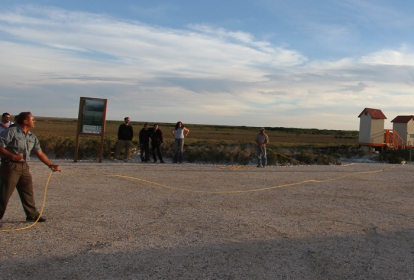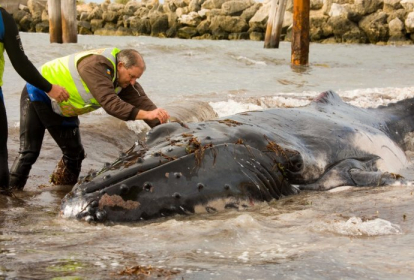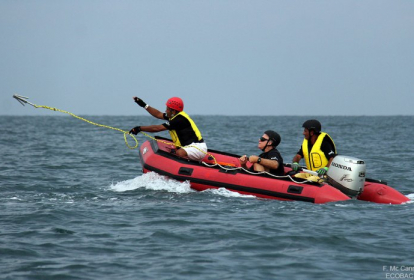The IWC has coordinated work to improve the humaneness of whaling operations since 1959. At the IWC today, work to improve cetacean welfare takes place through the Working Group on Whale Killing Methods and Welfare Issues.
The Commission increasingly addresses a wide range of issues that have the potential to affect the welfare of cetaceans. These include entanglements, strandings, ship strikes, whale watching, and pollution.
A Welfare Action Plan was introduced in 2014. It is regularly reviewed and the Commission received a report on progress at its meeting in 2022.
A new development is IWC's adoption of the Whale Welfare Assessment Tool. This was first considered at an IWC Welfare Workshop in 2016 which brought together animal welfare specialists, veterinarians, pathologists, biologists and academics. The tool adapts a framework known as the Five Domains Model which is widely used for undertaking systematic and structured assessments of animal welfare. The five factors assessed using the model are nutrition, environment, health, behaviour and mental state, and the IWC adaptation was tested using scenarios involving exposure to shipping traffic. The Commission agreed that the Whale Welfare Assessment Tool has a range of uses including identification of high priority issues and areas.
Whale Killing and Euthanasia of Stranded Cetaceans
Another key function of this group is to receive reports from member governments on the methods used to kill whales, the effectiveness of those methods and information to improve both the humaneness of the hunts and hunter safety. The IWC shares such training and information with other relevant organisations including NAMMCO.
A number of governments also report the effectiveness of euthanasia operations (of stranded cetaceans) to the Working Group. The Secretariat has developed a Summary Reporting Form which Contracting Governments can use to guide their reports. It is available as a PDF and Word document. Completion of this form is not compulsory nor is it intended to replace the submission of detailed reports where appropriate.
The form is based upon relevant Commission Resolutions (1997-1, 1999-1, 2001-2 and 2004-3) and a revised action plan on whale killing methods developed at an IWC workshop in 2003. Member governments may also wish to use the form to provide information on times to death and methods used to euthanize stranded or trapped whales.



